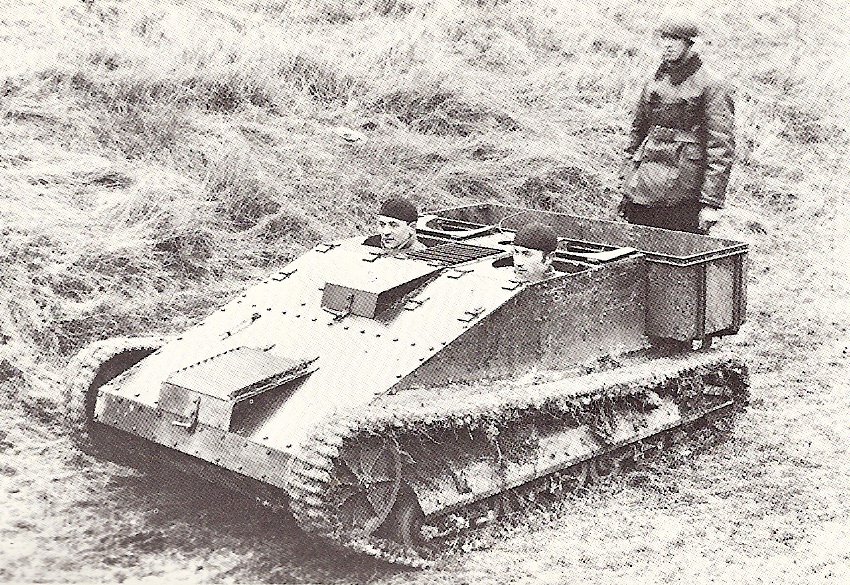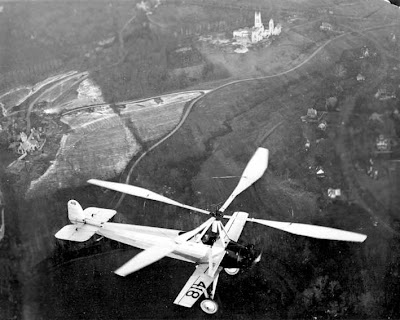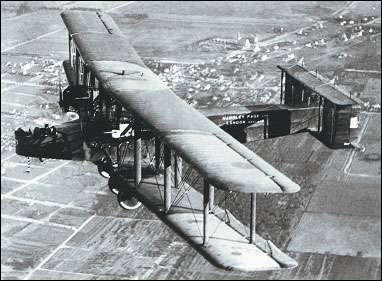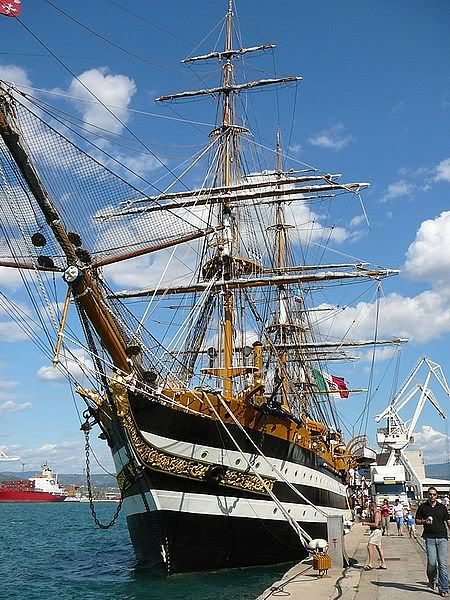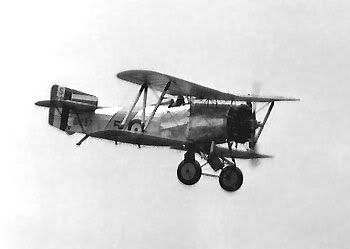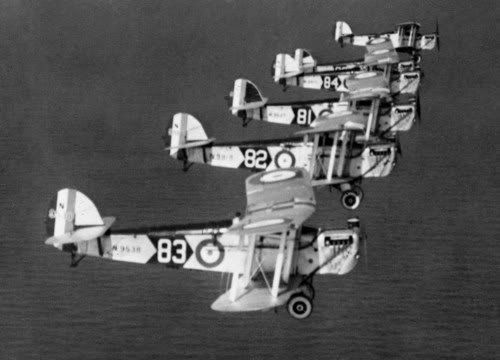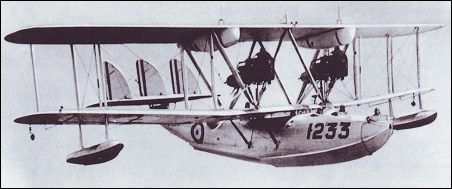Air Show, Portugal
Captain Renato Montefiore watched with great satisfaction as the various aircraft were displayed and did their aerial acroibatics and parades. He was getting a good look at a number of wonderful designs, and was making a list of recommendations for the Yishuv to consider purchasing.
The gyrocopters, his
raison d'etre in Portugal, had initially offended his sense of what ought to be in the air. The spindly blades replacing good, sturdy wings had him awash with misgivings at first, until he'd seen the flight characteristics displayed and wrapped his mind around how they generated lift. Glide properties had been replaced with something called "auto-rotation", which fascinated him. He had flown one, finally, and found it enjoyable if slow.
Captain Montefiore considered all the possibilites offered by the autogyro. It's low stall speed would seem to make it a better observation and artillery spotter platform than a standard airplane, and it might even make a decent ground-attack machine. It's short take-off space was a plus as well.
Captain Montefiore was also impressed by another attendee at the evaluations, a Professor Henrich Focke, of Germany, who had established a good working relationship with Juan de la Cierva.
"I tell you," Montefiore said one day during a break in activities, "The future belongs to the all-metal monoplane. Sure, the lift, the engines, the weight, but everyone who knows aviation knows that the time is near to draw the curtains on the classic biplane." De la Cierva and Focke had agreed, they'd discussed it at length and knew that a great many innovations and experiments in the aviation world were just around the corner.
Montefiore took a long long at the many tri-motor designs available at the show. The Ford Trimotor, stil in development stage, had been a show-stealer, as had the Junkers G.24 and G.31. The models were in prototype stages, but were going to see production as early as 1926 for sure. They'd be following in the wake of the already-established Fokker F.VII, a high-wing monoplane with three engines. Montefiore was sure to put purchase of the Fokker on his list of recommendations back home.

He also knew that the Yishuv Air Ministry was interested in the Fairey Flycatcher, but Montefiore was impressed with the German design on display, the Dornier Do H
Falke. It seemed more robust, to him, and could also be converted to float plane and torpedo operations, something he felt was important if the Yishuv was to exert any influence worth mentioning in the Mediterranean or the Red Seas.
Another thing that Montefiore wanted to see was an expansion in air capability. The Fokker Trimotor seemed to be a promising military transport aircraft, something that would be needed in the future. He wa salso impressed by the concept of 'Naval Aviation', but he knew the Yishuv would be a long way from developing anything of the sort-- although he'd hoped, at least, to put reconaissance floatplanes on ships that could be recovered by hoists, or even a whole ship dedicated to just that.
He continued to make his rounds, and write down his recommendations. He couldn't wait to present them to the Council at Tel-Aviv...
Results:
Group-Captain Montefiore acquires ideas at airshow.
Very impressed with autogyros, all-metal monoplanes and trimotor transports.
*** *** *** *** *** ***
Shaham Residence
1021 Rechov Maimonides
Tel-Aviv
Evening
"
What the German people need is an outrage!" the manic voice on the radio said, "
Too long we have suffered the depravities of the people of lesser mind... the immoral, the degenerates, the drunkards in our midst that tempt our spirit into the dead-end of lies and falsehood..."
Colonel Ariel "Arik" Shaham found the new radio show, "Reich Radio", to be full of pompous, bombastic insanity. Yet it was with a perverse fascination that he occassionally listened in, amazed at the bizarre and twisted visions of the far-rightists and fascist-volkisch movement in parts of Europe. It was not seen as a German, Austrian, Italian thing, or belonging to any one country-- rather, it was seen as a movement of hate that existed in dark corners throughout the world.
Many in the Yishuv followed the meanderings of the currently rising star of the movement, the one known as Hitler. The disaffected veteran had written a horribly convoluted book that was part biography and part fantasy while serving a brief stint in jail for some misdemeanor, the
Mein Kampf book that had been published recently. Most people Arik knew found him to be such a wild, bizarre figure that they found him laughable-- many even liked that idea that the little Austrian corporal was the face of the hard-right, because he was such a rediculous caricature.
But Arik wasn't entirely comforted.
Imagine this little hyena with actual power, he wondered.
"
The Aryan people, the true inheritors of the Greco-Roman glory, have a destiny in the East... vast lands inhabited by mongrels of the lowest order; mongrel-men of Communists, Jewish Bolsheviks, and Slavic degenerates. They are at best poor caretakers of the land that is rightfully ours! Where is the outrage?" he screamed into the radio microphone. Arik could almost see the spittle flying from the man's face in his mind's eye. "
I will tell you where the outrage is... buried deep inside the beating heart of every living man, every man of blood and soil, buried under layers of civility and proper manners... there beats the heart of a lion! An outraged lion! We should, all of us, every one, be out there, joining the fight against Communism, the abortionists and bankers that want only to steal, steal, steal..."
Arik shook his head, frowning, and leaned over to turn the radion dial. He'd heard more than enough.
"
...we should all volunteer, great Freikorps to fight on the side of the Dominion; or like Baron Ungern von St--*" Arik turned the dial to some BBC News, where he could hear about the troop movements in the Far East War, the increased danger of traveling in the Sea of Shepistan, and the rumors of Japanese and Cascadian movements in the Pacific.
I hope we don't have anything crazy happen while Trotsky is in town... he thought, worried about the Yishuv-- and his son.
Results:
Col. Shaham listens to evening radio.
Follows, with morbid fascination, the ravings of talk-radio's newest lunatic of the far right.
European far-right calls for volunteer "Freikorps" to go fight the Comintern.
Arik worries about his son, at the Ashkelon Rally.
*** *** *** *** *** ***
Ashekelon Dockyards
The docks were a sea of Red Banners. Signs in Hebrew, Arabic, English, French, German, Dutch, and of course, Russian all proclaimed international socialist brotherhood and common cause in the fight against the "old guard" forces of corruption and imperialism.
"This is even better than I thought it would be," Natasha Solomonova Levitina said, her face flushed with emotion as the small ship approached. It was a Russian passenger liner meant, originally, for Black Sea and Mediterranean forays; not the big liners meant for true cross-oceanic travel but a humbler vessel.
"This day would not happen were it not for you, 'Tasha," Yaakov Andreyvitch Rubenstein said, hugging her. "Here he is!" The crowd surged, the excitement palpable in the air. It was true-- Leon Trotsky himself was coming down th eramp form the small liner, and stepping foot on the docks.
Yaakov Rubenstein, Natasha Levitina and Faisal ibn-Mustafa al-Sayyedi were there to meet him. Natasha straightened and held out her hand, not realizing how she was trembling.
"Comrade Commissar," she said boldly, "We, the workers and artists of the Ashkelon people's collective, welcome you!"
Trotsky looked at her, an unreadable twitch went across his face-- amusement? Annoyance? --he looked at her and her outstretched hand, and began to laugh. He took her hand as if to shake it, and use the opportunity to pull her close where he gave her two kisses, one on each cheek.
"Comrade Commissar Levitina, I thank you!" he said, "And you must be Comrade Chairman Rubenstein, and Comrade al-Sayyedi of the Arab Worker's Collective!" he said cheerfully. "I had no idea what to expect; this, however, is beyond my expectations! The Revolution is truly international!" The criwd was cheering and calling, and the
Internationale was sung, the tune recognizeable despite the multitude of langauges used. Trotsky was shaking hands and clapping workers on the back, as the throng of people made their way to the city center.
As the crowd moved, the enthusiansm picked up steam, and the three Yishuv organizers, and Trotsky himself, soon found themselves being carried onto the shoulders of their comrades to the city plaza. There, they were set back down, and Trotsky went to the top of the steps of the hotel he was to stay at, the three local party organizers stood at his side. A bullhorn was produced, which he took with some bemusement.
"I assure you, Comrade Commissar, that the rally tomorrow will have electrical speakers," Natasha whispered to him .
"Friends, Comrades, workers of the great International," he said, and hesitated a sgreat cheers rocked the plaza. A few scattered groups began a ragged singing of the
Internationale but they got hushed by their eager-to-hear neighbors. "We have much to talk about, Comrades," Trotsky said, "When I began preparations for my journey, the only struggle facing us was the eternal revolution of the worker for rights, for decency, for dignity..." --cheers went up-- "...but since, the clouds of war have darkened our struggle. In the Far East we face open opposition from imperialist forces, counterrevolutionary forces..." --a chorus of boos-- "...you are not alone out here. You are part of the struggle! And we will meet tomorrow, I promise, and we will forge a new chapter in the international revolution..!
The cheers that went up, Natasha swore, made the buildings around them tremble, but it was only the tears of rapture in her eyes distorting her vision.
Results:
The "Trotsky International" in the Yishuv city of Ashkelon begins.
***



